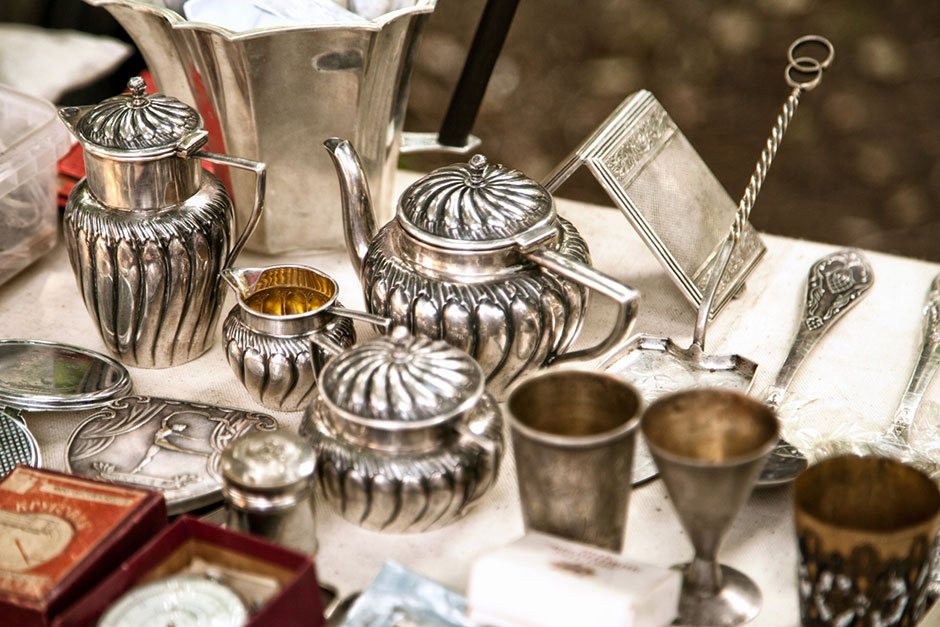In this last of four articles, I want to summarize and give insight for you to make knowledgeable choices when you need to about downsizing or when handling an estate.
The first article addressed how and when to choose a qualified appraiser, the second addressed the estate sale option and the third addressed the auction option. This article is a discussion of taking the information learned and applying it when choosing how to sell personal property as an owner or an estate representative. To get the most use out of this article, please preview the first three articles (links above) for critical insights and helpful information.
Your options include:
-
An estate sale.
This can either be run by you with help from family and friends or by using a professional estate sale professional.
-
An auction house.
Either local, regional or national, depending on the value of the items in the estate.
-
Donations to charity.
Dispersing what you can amongst family members who would want items, then donating to a local charity and disposing of what they do not take. There are a number of local charities such as Hearts for Hospice which support homeless halfway houses helping people assimilate back into society from prison, Salvation Army, or St. Vincent de Paul will pick up and haul away. This can also work for residue left over from an estate sale, one we often use as it benefits the community. What they do not take will need to be hauled away for disposal.
-
Contacting a local/area buyer of estates on a wholesale bulk basis.
This option has the advantage, like an auction, of clearing all or most of the contents. The downside is that the figure they will offer will be very low. In the event the estate (living or deceased) has enough value to have an estate sale or local auction, which one would you choose?
Some things to consider are:
1. Time Element: how fast does the estate contents need to be cleared?
Often if you are selling the home, time can be a premium to get the updates and repairs done to put the house on the market. Sometimes the estate needs to be finalized to meet a government estate probate or IRS deadline which may need to be considered.
2. Willingness of people to help staff an estate sale you would put on yourself.
If this is an option and you are not well informed on the value of items, I fully recommend consulting with a qualified appraiser who can point out the items of value and value them for you. People so often sell such items at a tiny fraction of their worth.
3. Availability of qualified estate sale agents or quality auctions in your area.
It is up to you to choose an estate or auction professional that will serve your needs with integrity and good marketing skills. Please review the previous articles for assistance in that choosing. If you choose an auction, it is smart to make arrangements to be there or a representative of your choosing at the sale.
Monitoring the Sale
To wrap this series up, you may find after consultation with a qualified appraiser that you have a number of options and combinations of choices. In some cases, combinations of your choices is the best approach. A local estate sale for the household and lesser valuables or a local auction combined with selected items reserved to be sent to a regional or national auction house. If that is the case, you want your agent or you, yourself, to send photos and descriptions ahead of time to see if the auction house or houses are interested. Any remaining would fall into the category of donation or disposal.
It is my hope that this series has been helpful to you now or in the future when you or a loved one is faced with major downsizing or estate challenges. My advice is to take one step at a time, evaluate potential agents or auction houses carefully and remember you are the client, the one in charge!







